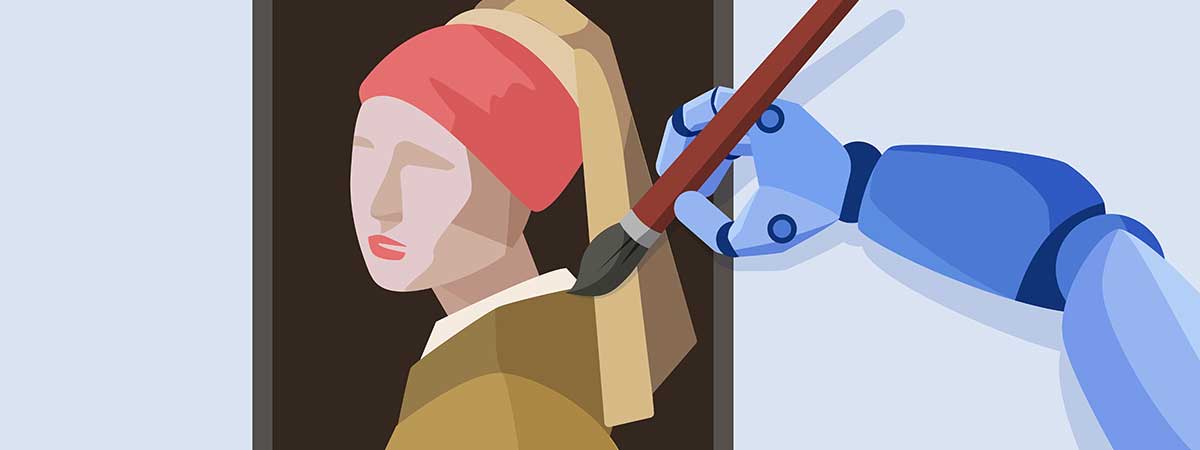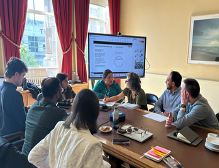Lead DIGIT Lab Academics: Dr David Plans & Dr Jonathan Bird
The Problem

Approximately 1 in 3 individuals will experience a period of low mood/high anxiety, which is severe enough to warrant a clinical diagnosis, at some point in their lifetime. It is estimated that 17 million working days were lost in 2022/23 due to mental health problems in the UK (Health and Safety Executive, 2023). The costs to UK employers of poor mental health are substantial, estimated at £56 billion per year (Deloitte, 2022). Furthermore, over a third (37.4%) of adults in the UK reported that the COVID-19 pandemic negatively affected their wellbeing (Office for National Statistics, 2020). The NHS Talking Therapies for Anxiety and Depression (TTAD) programme was launched in 2008 to enhance the quality and accessibility of mental health provisions in England. It has been reported that 1.76 million people in England were referred to TTAD in 2022/2023, with 672,000 individuals finishing a course of treatment (NHS Digital, 2024). Average waiting times for treatment was 21.7 days, but there is substantial variability across England (see Figure 1). Accordingly, there is a pressing need for innovative solutions to assist in the delivery of mental health provisions at both the diagnostic and therapeutic level.
The Solution
Smartphone apps offer a practical, scalable, and accessible solution to promoting mental health (Vera Cruz et al., 2023). Smartphone apps also reduce significant barriers to traditional treatment, such as perceived stigma, geographical distance, financial costs, and lack of time due to work commitments or caring responsibilities (Ralston et al., 2019). DIGIT Lab has developed an open-source smartphone application called Veris (see Figure 2). The application is modular in design and researcher-practitioners can easily edit the content of Veris by modifying a single JSON script without the need for extensive coding experience. The application follows an Ecological Momentary Assessment (EMA) protocol, by prompting users to complete tasks or questionnaires over a pre-defined time. Veris has support for text input, Likert scales, multiple choice questions, and video content. Moreover, a series of dedicated modules have been developed, such as the Phase Adjustment Task (Plans et al., 2021) for measuring interoception ability via heart rate variability data, which can be used as a good indicator of mental disorder.
Figure 2. Veris mockup
Implementation
Veris has been primarily deployed within Healios, a company that provides remote sessions for children and young people with mental health, autism, and attention deficient hyperactivity disorder concerns. Veris has been used to develop a series of autism diagnostic biomarkers that can help clinicians arrive at diagnostics more quickly. Initially deployed in cohorts of a few hundred within Healios’ patient queues, it will now pilot within several NHS trusts whose waiting lists number in the thousands. We are also currently exploring how Veris can be used with NHS practices as part of their digital transformation strategy. This would allow practices to measure mental health markers such as anxiety and depression more efficiently by quickly digitising questionnaires that they currently use on paper, thereby reducing the burden on Children and Adolescent Mental Health Service (CAMHs) Inpatient Services and shortening the length of waiting queues by expediting their processes.
Future Directions
We are currently working towards the following roadmap items:
• A web-based form to allow researcher-practitioners to easily configure a study protocol
file for deployment within Veris.
• Additional modules that are predicated on biometric data including sleep duration and
onset, physical activity behaviour, and heart rate variability.
• Support for Apple Health and Google Fit to provide a more holistic overview of users’
current physical and mental health.
References
- Deloitte. (2022). Mental health and employers: The case for investment – pandemic and beyond.
- Health and Safety Executive. (2023). Working days lost in Great Britain.
- NHS Digital. (2024). NHS Talking Therapies, for anxiety and depression, Annual reports, 2022-23. NHS Digital.
- Office for National Statistics. (2020). Coronavirus and anxiety, Great Britain: 3 April 2020 to 10 May 2020.
- Plans, D., Ponzo, S., Morelli, D., Cairo, M., Ring, C., Keating, C. T., Cunningham, A. C., Catmur, C., Murphy, J., & Bird, G. (2021). Measuring interoception: The phase adjustment task. Biological Psychology, 165,108171.
- Ralston, A. L., Andrews III, A. R., & Hope, D. A. (2019). Fulfilling the promise of mental health technology to reduce public health disparities: Review and research agenda. Clinical Psychology: Science and Practice, 26(1), e12277.
- Vera Cruz, G., Aboujaoude, E., Khan, R., Rochat, L., Ben Brahim, F., Courtois, R., & Khazaal, Y. (2023). Smartphone apps for mental health and wellbeing: A usage survey and machine learning analysis of psychological and behavioral predictors. Digital Health, 9, 1–12.
Related publications
VERIS app Github https://github.com/davidplans/veris
- Bird JM, Karageorghis CI, Jones L, Harris DJ, Alharbi M, Vine SJ (2024). Beyond Rubik: the Embodiment-Presence-Interactivity Cube Applied to Exercise. Psychol Sport Exerc Abstract. DOI.
- Plans D., Lee MC., Bird JM., Morelli D., Cunningham A., Ponzo S., Murphy J., Bird G., Aspell JE. (2024). Heightened interoception in adults with fibromyalgia, Biological psychology, pp. 108761, DOI.
- Wang Y., Bird J., Guo L. (2023). Dynamic mechanisms of exercise to improve body satisfaction: Perceived or actual fat loss?. International Journal of Psychology, DOI.
- Valentine S., CunninghamA., Klasmer B, Dabbah M, Balabanovic M, Aral M, Vahdat D, Plans D (2022). Smartphone movement sensors for the remote monitoring of respiratory rates: Technical validation. Digital Health, 8. DOI.
- Plans, D., Ponzo, S., Morelli, D., Cairo, M., Ring, C., Keating, C. T., Cunningham, A. C., Catmur, C., Murphy, J., & Bird, G. (2021). Measuring interoception: The phase adjustment task. Biological Psychology, 165,108171.




